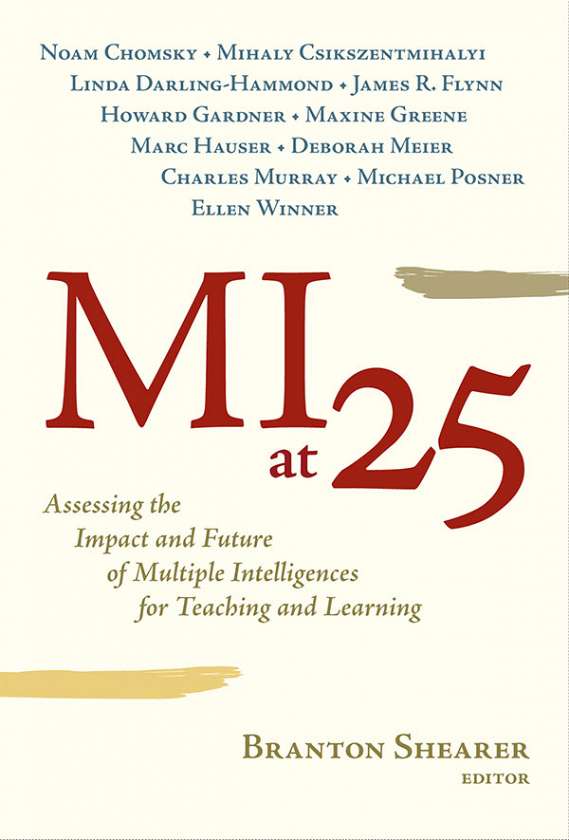Professors: Request an Exam Copy
Print copies available for US orders only. For orders outside the US, see our international distributors.
Edited by: C. Branton Shearer
Publication Date: September 24, 2009
Pages: 144

Featuring a variety of viewpoints from the most prominent experts of our time in the fields of education, psychology, and neuroscience, MI at 25 addresses vital issues in the acceptance and implementation of Multiple Intelligences. Are there convincing arguments and evidence supporting the validity of the theory of M I? Is MI truly a scientific theory that will survive the test of time? What is the impact and contribution of MI theory to classroom practice, school design/reform, and the success of individual students? What are the cultural barriers to MI-inspired educational practices and research initiatives? This important book provides a much-needed corrective that rebalances and deepens our knowledge of MI, in contrast to the typical “pro”or “anti”multiple intelligences rhetoric. Careful readers will come away with crucial information to help them improve their teaching practice, develop more effective curricula, and become lifelong learners.
This readable collection includes chapters by Noam Chomsky, Mihaly Csikszentmihalyi, Linda Darling-Hammond, James Robert Flynn, Maxine Greene, Marc Hauser, Deborah W. Meier, Charles Murray, Michael I. Posner, and Ellen Winner, and features a special chapter by Howard Gardner.
Branton Shearer is a neuropsychologist, the creator of the Multiple Intelligences Developmental Scales, and the author of several books, including MIndful Education for ADHD Students: Differentiating Curriculum and Instruction Using Multiple Intelligences.
“A treasure trove of thoughtful ideas to help set the direction for educational reform.”
—Christine Kunkel, Principal, Key Learning Community
"A remarkable collection of essays and interviews that greatly amplifies the richness and depth of the theory of multiple intelligences."
—Thomas Armstrong, author of 7 Kinds of Smart, and Multiple Intelligences in the Classroom
“This book is a treat for those who want to think about the nature of intelligence and how multiple intelligences can be used to help students learn.” —Thomas R. Hoerr, Head of School, New City School, St. Louis, MO
“A timely, compelling, and much-needed collection of insights addressing MI theory, its effectiveness, sustainability, and future application.”
—René Díaz-Lefebvre, psychologist and contributor, Multiple Intelligences Around the World
“Few theories from cognitive psychology help teachers think about their work and influence their activities. But MI provides just that kind of organization of thought and guidance for practice. This is a book rich in supportive and critical ideas that sharpen teachers’ thinking about the children they help to educate.” —David C. Berliner, Regents' Professor, Mary Lou Fulton Institute and Graduate School of Education, Arizona State University
Professors: Request an Exam Copy
Print copies available for US orders only. For orders outside the US, see our international distributors.